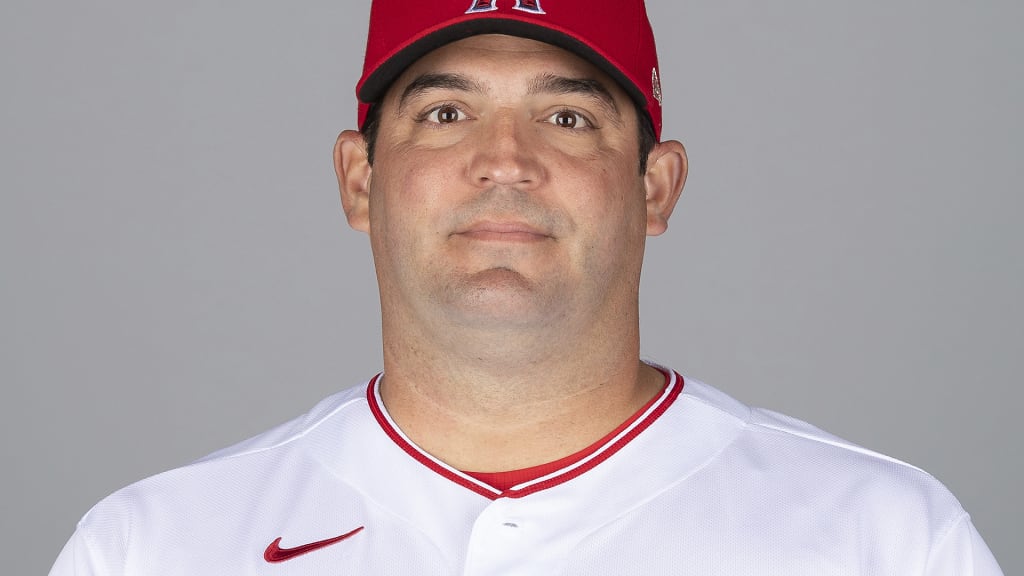
DETROIT -- Ryan Garko spent much of his playing career trying to beat the Tigers with Cleveland, and he jumped on a couple of Justin Verlander fastballs for home runs.
“We’re going to hire this guy, and he killed us,” general manager Al Avila joked about Garko, the Tigers’ new vice president of player development.
Garko is now jumping into the front office, hoping to help Detroit get back to the days when it was a perennial contender.
The 40-year-old Garko has had a few stops in the nine years since his playing days ended, putting him in line to be the top candidate for a position Avila called “probably the second-most important to the GM position as we move forward.” Garko fills a job that opened just a few weeks ago, after the Tigers shifted Dave Littlefield to a scouting role. Their search for a replacement brought them to Garko’s vision for a system that has top prospects but is looking to take the next step.
Garko had been with the Angels the past two seasons as a coaching assistant and replay coordinator, a hybrid role that allowed him to work on the field for manager Joe Maddon as well as with the front office.
Before that, Garko had two roles that he said were instrumental in developing his philosophies for player development. He was head coach at University of the Pacific in 2018 and '19, coaching six players who ended up signing pro contracts. He also managed the Dodgers’ Double-A Tulsa affiliate in '16-17. Los Angeles’ player development director at the time was former Tigers outfielder and current Giants manager Gabe Kapler.
“I don’t think I’ll ever hide that Gabe Kapler had a really big influence on me,” Garko said. “He gave me my first job post-playing to manage. Gabe’s a very intelligent, forward thinker, not afraid to try anything, but at the same time always was willing to listen. There’s never an idea you could bring to Gabe that he didn’t listen to, and you can see the way he hasn’t been afraid, even what he’s doing in San Francisco with the way they practice, the things he’s done with nutrition, the coaches that he hires.
“Those are the kind of things that have influenced me. And [they're] definitely things that I think if you’re going to run a system that’s really well-rounded to not be afraid to try, to bring in some people that maybe don’t fit the exact way we’ve always done it.”
Two themes emerged as Garko discussed his vision. First was the idea of helping coaches develop and improve their craft. That resonated with Avila, who talked when the Tigers began their search about helping coaches better use the analytics and technology the team has spent years and dollars enhancing.
“One of the things that we want to change in our system,” Avila said, “is the [roving instructor] role, where that person went into the field and was there for five days and worked with players, and then they left. And then what happens after that? Well, bringing in guys that can actually coach the coaches to coach the players, and then give them the freedom to really do and excel at what they know best. So it’s going to be more progressive in how things are changing in the game.”
The other theme from Garko was the idea of helping players holistically beyond field instruction.
“Mental health, mental support is going to be an area where I really want to focus,” Garko said. “That’s probably what I learned most about going back to [the Minor League] level. These are formative years for these guys.
“It’s so nice to see mental health becoming something that in athletics, we don’t shy away from anymore. And we can coach that part of their lives and that part of the game just as much as we can teach them to be better hitters and better pitchers. I think from college, that’s what I took away from the most, is that you’ll get the best version of the player by supporting them holistically. And the mental part is such a part of it.”
Like Tigers manager A.J. Hinch, Garko was a catcher at Stanford University, where he shared Pac-10 Co-Player of the Year honors in 2003 and won the Johnny Bench Award as college baseball’s top catcher. Garko moved to first base in pro ball and made his Major League debut with Cleveland in 2005. He later returned to his alma mater to start his coaching career as an assistant.
Garko hit 55 home runs over his six-year Major League career, including six against the Tigers.
“I was going to say my biggest memories [of the Tigers] is Verlander striking me out all the time,” Garko said, “and Joel Zumaya throwing 104.”
Garko’s hire continues a stretch of change for the Tigers’ player development system, which boasted baseball’s No. 2 farm system by MLB Pipeline entering the season on the strength of since-graduated prospects Casey Mize, Tarik Skubal and Matt Manning, along with current top prospects Spencer Torkelson and Riley Greene. All five were ranked among the top 25 on MLB Pipeline’s Top 100 list going into the season. In the most recent rankings, Detroit's system is No. 7.
“We’re going to try to win every game we can the rest of the season. Next year, we’re hopeful to be a playoff-contending team,” Avila said. “But the infrastructure of this organization is being set up as we speak for years to come to be successful year in and year out.
“We want to win, but we want it to be sustainable, and in a way where you don’t have to go out there and depend on a $250-300 million payroll. We want to produce our own players.”


